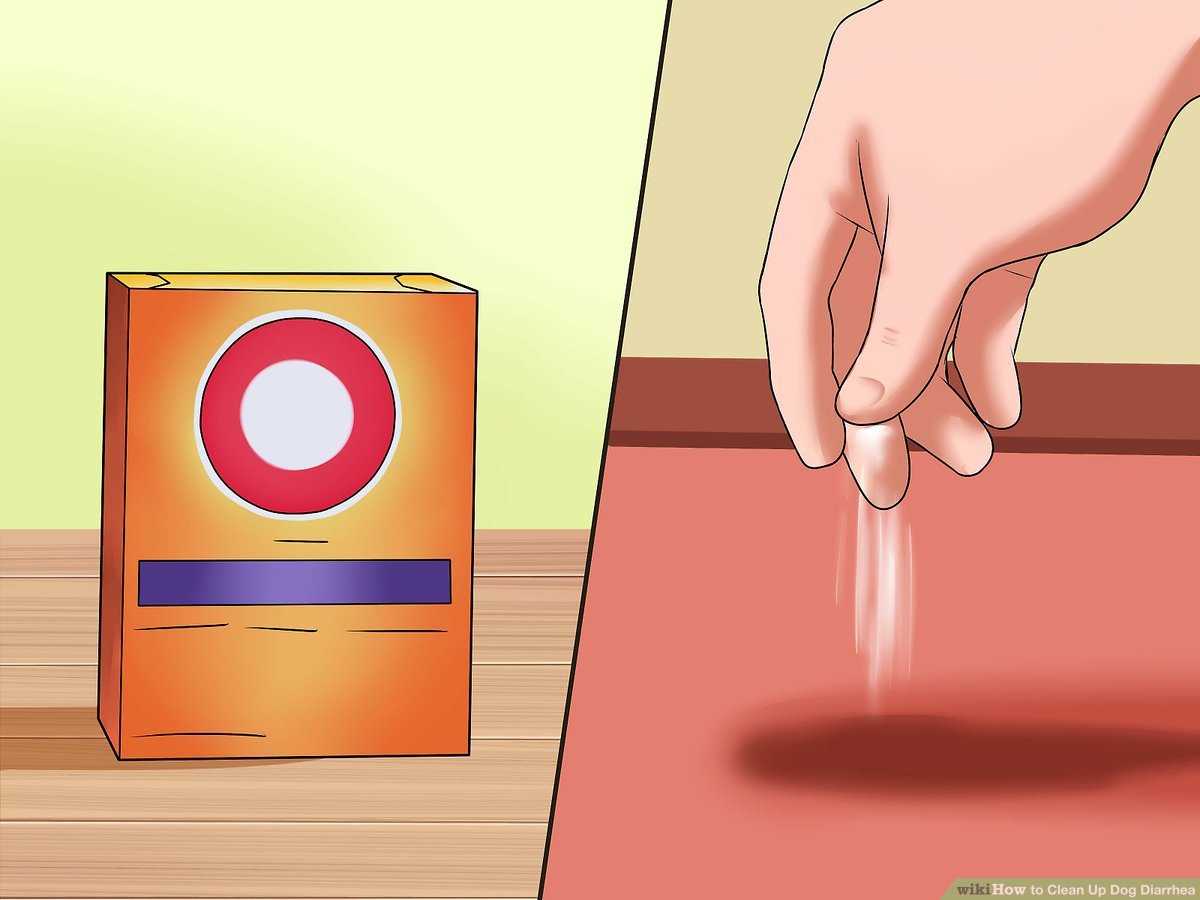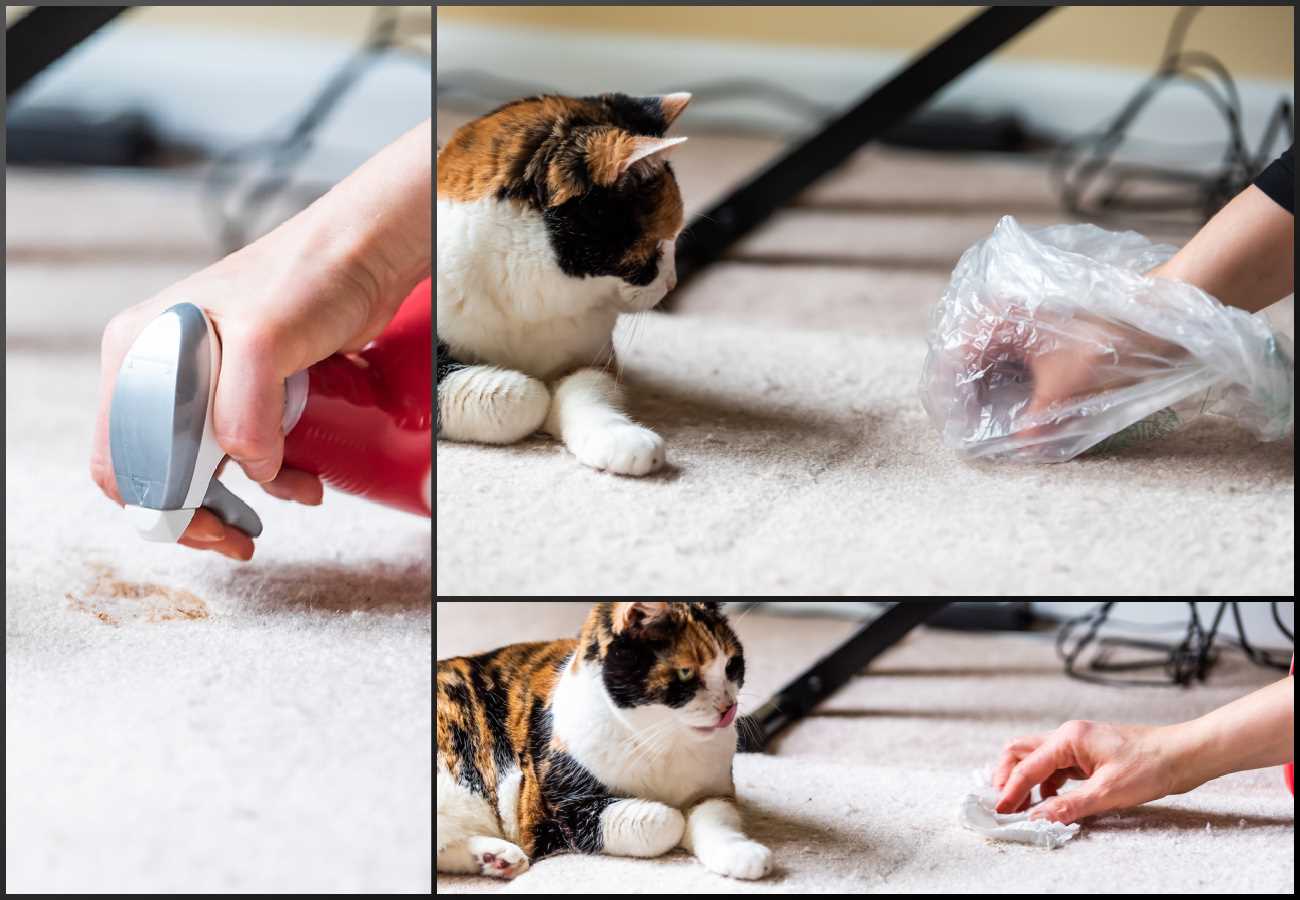



Grab some paper towels immediately. Blot the area gently to absorb moisture without spreading it further. Don’t rub; it makes the situation worse. Once you’ve soaked up as much as you can, move on to the next step.
Mix a solution of mild dish soap and warm water. Using a clean cloth, apply this mixture to the stained area. Work from the outside in to prevent spreading. Rinse the cloth frequently and continue until the stain begins to lift.
For lingering odors, sprinkle some baking soda on the affected spot after it’s dried. Let it sit for a few hours, then vacuum it up. This will help neutralize any unpleasant scents and leave your space smelling fresh.
In case the stain persists, consider using an enzymatic cleaner specifically designed for pet messes. Follow the instructions carefully for best results. Always test any cleaner on a small, inconspicuous area first to avoid damage.
Regularly check your favorite lounging spots for signs of trouble. Staying on top of these little accidents can save you from bigger headaches down the road!
Steps to Tackle Messes on Your Floor
First, grab paper towels or a clean cloth to absorb as much of the unpleasantness as possible. Blot the area gently; don’t rub, as that can push it deeper into the fibers.
Next, mix a solution of water and white vinegar in equal parts. Apply this mixture to the stained spot. Use a soft brush or cloth to work it into the fibers, lifting away residues. Rinse with a bit of clean water and blot again.
Deodorizing the Area
For lingering odors, sprinkle baking soda over the affected area after it dries. Let it sit for several hours or overnight, then vacuum it up. This will help eliminate any remaining smells.
Preventing Future Incidents
Consider keeping a close eye on your furry friend’s diet and health. Regular vet check-ups can help address any underlying issues that might lead to similar situations.
Gather Necessary Cleaning Supplies
Start with a few key items that are critical for this task. Here’s what you’ll need:
| Item | Purpose |
|---|---|
| Paper Towels | For initial blotting and removal of solids. |
| Rubber Gloves | To keep your hands clean and protected. |
| Bucket | For mixing cleaning solutions and holding waste. |
| Vinegar or Enzymatic Cleaner | To neutralize odors and break down stains. |
| Spray Bottle | For applying cleaning solutions directly. |
| Scrub Brush | To agitate and lift the stain from the fibers. |
| Vacuum Cleaner | For final cleanup and to remove any loose debris. |
Having these supplies ready ensures a smoother cleanup process. For those tackling outdoor space challenges, check out this do it yourself electric dog fence guide for additional tips.
Additional Considerations
Ensure that the cleaning solutions are safe for the fibers in your flooring. Test any new product in an inconspicuous area before full application. This preparation minimizes the risk of damage and ensures effective results.
Remove Solid Waste Carefully
Use a plastic bag or gloves to handle any firm matter. Gently scoop it up without pushing it deeper into the fibers. It’s important to avoid any smearing that could spread the mess further.
If the waste is particularly stuck, dampen a cloth with warm water and press it against the area to loosen it, but don’t rub. Once you’ve removed the bulk, dispose of it securely.
After that, use a separate cloth to blot the area, absorbing any remaining moisture. Make sure to avoid scrubbing, as this can damage the fibers and spread stains.
Once you’ve cleared the solids, proceed with your cleaning protocol to ensure the area is sanitized and odor-free. This step is key in maintaining a fresh environment.
Blot the Stain with Paper Towels

Grab some absorbent paper towels. Place them directly onto the affected area, pressing gently to soak up the moisture. Avoid rubbing, as this may push the mess deeper into the fibers.
Repeat Until Dry

Change the towels as they become saturated. Continue blotting until no more liquid transfers to the towels. This step is crucial for preventing lingering odors and stains.
Use Clean Towels
Always use clean, dry towels for each blotting session. This practice helps maintain cleanliness and ensures effective absorption. Once the area feels less damp, you can proceed to the next steps for further treatment.
Choose an Appropriate Cleaning Solution
For tackling stubborn marks, I recommend using a solution of white vinegar and water. Mix equal parts of both in a spray bottle. This mixture not only neutralizes odors but also helps break down the mess effectively.
If the stain persists, consider an enzymatic cleaner. These products contain specific enzymes that target organic matter, making them ideal for this type of situation. Look for cleaners that are safe for various surfaces, ensuring no damage occurs.
For those who prefer natural remedies, baking soda is a great option. Sprinkle it over the affected area after applying your preferred solution. It absorbs moisture and odors, providing an additional layer of freshness.
Always test any cleaner on a hidden section of the fabric to avoid discoloration. After using any solution, rinse the area with clean water and blot it dry with a towel.
Lastly, while you’re caring for your space, ensure your hydration station is top-notch. You can check out the best water dish for cats for tips on keeping your drinking area appealing.
Rinse and Dry the Affected Area
After addressing the bulk of the problem, it’s crucial to rinse the spot thoroughly. Use lukewarm water, applying it directly to the stained area to help dissolve any remaining particles. A spray bottle works well for this purpose, ensuring an even distribution.
Steps to Rinse
- Fill a spray bottle with lukewarm water.
- Lightly mist the stained area, avoiding excessive saturation.
- Gently blot with clean cloths or paper towels to absorb the moisture.
- Repeat until the area feels clean and fresh.
Once rinsing is complete, drying the area is the next priority. This prevents any lingering odors and discourages mold growth.
Drying Techniques
- Use dry towels to blot the area, absorbing as much moisture as possible.
- Place a fan nearby for faster drying, directing airflow toward the damp spot.
- If safe, use a hairdryer on a cool setting to expedite the process, keeping it at a distance.
Ensuring the spot is completely dry minimizes any potential stains or odors, making the space comfortable again.





